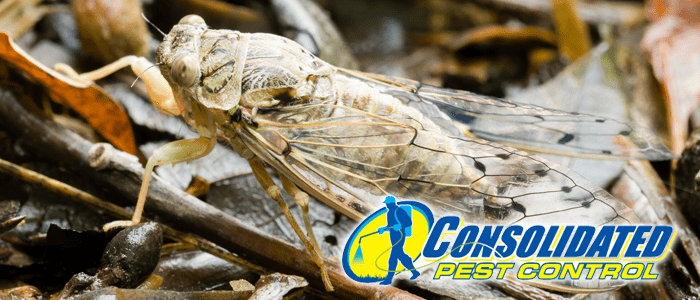
What Are Cicada Killers?
You’re probably familiar with cicadas. These insects occupy large swaths of the sky and cover trees from sea to shining sea every summer, but you may have also seen something else in areas where you hear cicadas. Something big, alarming, and fast. It looked kind of like a wasp – Is it one of those Giant Japanese Hornets that can sting people to death in seconds? Well, hopefully not. No, more likely, what you encounter is an industrious wasp, cicada killers. Though they won’t be active again until the summer, it can help to know what you’re dealing with ahead of time.
Cicada Killer Basics
Cicada killers are a species of wasp that care about two things: Digging holes and catching cicadas. As the name suggests, cicada killers spend their time hunting down cicadas. They sting them, paralyze them, and then haul them off to their nests. Once inside the nest, the cicada can survive for a while, though it is often eaten very quickly by the cicada killer’s young. It’s a gruesome way to make a living, but it ensures the next generation of cicada killers will grow up to be big and strong. And we mean big – Cicada killers can get over two inches long!
Are Cicada Killers Dangerous?
Despite their fearsome appearance and the fact that stings can be seriously painful, these massive wasps are not dangerous at all. They aren’t even aggressive! Females are the only cicada killers with stingers, and they aren’t aggressive in any way. They’ll only sting if they’re attacked – They even lack the behavior to defend their nests! Unlike bees, you can walk all over their homes and do your business right next door, and the females won’t mind one bit. Males will bluff, however – They will charge intruders on their territory, but as they can’t bite or sting, the gesture is all a bluff. It sure isn’t very comforting, though! The males are just as big, and staring down a huge wasp is sure to be alarming.
That said, they aren’t dangerous to us, but they can be a little bothersome to our pets. Sometimes a cat or dog will catch a cicada killer, the cicada killer will sting them, and then never do it again. Since cicada killers start their flights in the morning and settle in at night, you can avoid stings by managing when your pet goes outside. Sometimes, a pet could be allergic and have a severe reaction – This is more common with stings near the mouth. If this happens, take your pet to the veterinarian immediately.
Do Cicada Killers Cause Damage?
If you’re a gardener, you might consider these a pest. These wasps seek out well-drained, light soil with full sunlight. If that sounds like your garden, cicada killers are bound to show up if you also happen to be near trees that cicadas occupy. If they dig their home near the base of a plant, they can disrupt that plant’s root system. Skunks can also seek out their homes and dig them up together, whether your garden is in the way or not!
If you suspect you’ve got a cicada killer problem, don’t wait – Call Consolidated Pest Control today and tell us your situation.








